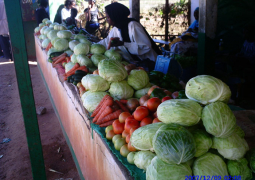Following Gambia Government's latest increase of the price of petroleum fuel, response from concerned members of society, especially vehicle owners and commuters, has been almost instantaneous.
It was against this backdrop that The Point yesterday went out to get the views of a cross-section of Gambians in and around the
The Shell and Total filling stations along the busy West-field-Brikama highway were virtually overwhelmed by commercial and private vehicles in a move described by many as possible hoarding of fuel for fear of possible shortage within the coming days.
In a news release issued to this paper on Tuesday, the government of the
According to the government's news release, the prices will henceforth be as follows: Super Petrol from D30.00 to D33.00 per litre; Gas Oil from D28.00 to D32.00 per litre and Kerosene from D21.00 to D26.00.
Speaking to this reporter, Juldeh Barry, a taxi driver, expressed dismay over the increase in the price of Petroleum Fuel, a situation he said has left them with no other option but to also increase the fares in few days' time.
According to the furious looking taxi driver, the rise in the prices will surely rock the entire nation because, as he explained, the rise in the prices of not only Petroleum but other basic commodities has not reflected in the earning capacity of the average Gambian.
"This is no surprise to me because there is no price control in this country," said Omar Marong, another driver. According to Omar, whatever the situation may be, commuters should without doubt expect a rise in the fares as they (taxi drivers) cannot cope with the situation any longer.
Amadou Ceesay, a commuter, said the situation is a difficult one to say the least and that the cost involved is simply beyond the means of most people, especially civil servants.
He cited the current absence of public transport in the country, particularly during working days, as a glaring signal of a bleak future for the country's transportation industry, a situation he blamed on the continued rise in the price of petroleum fuel.
Also expressing his view on the latest development, Ebrima Jammeh, another driver, said: "We have seen in recent times the increase in the price of basic commodities in the country and with this latest increase in petroleum fuel, I think the government should definitely help before the situation gets out of hand."




